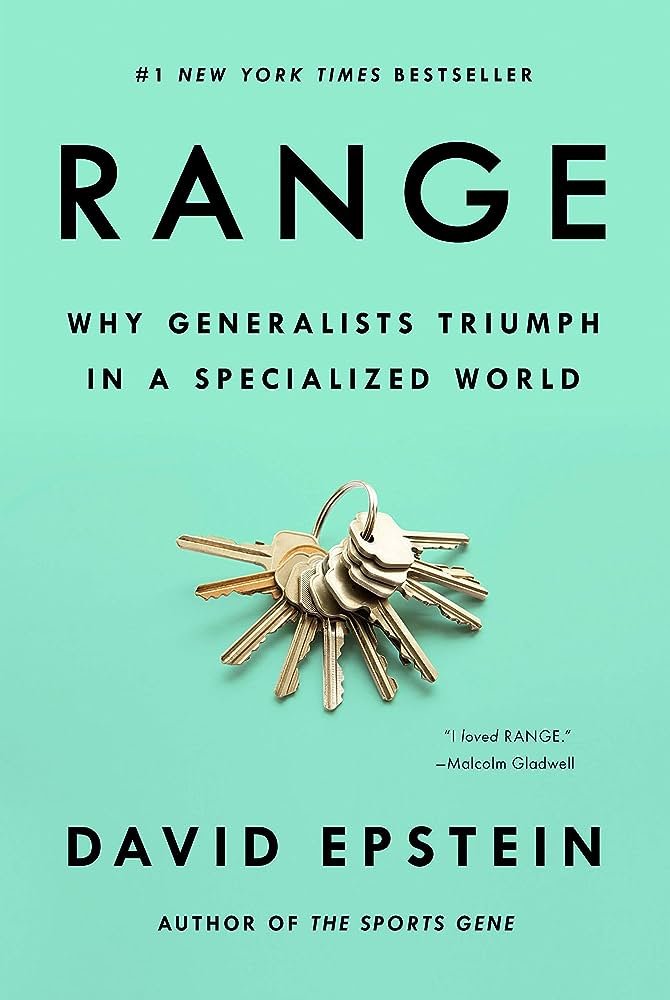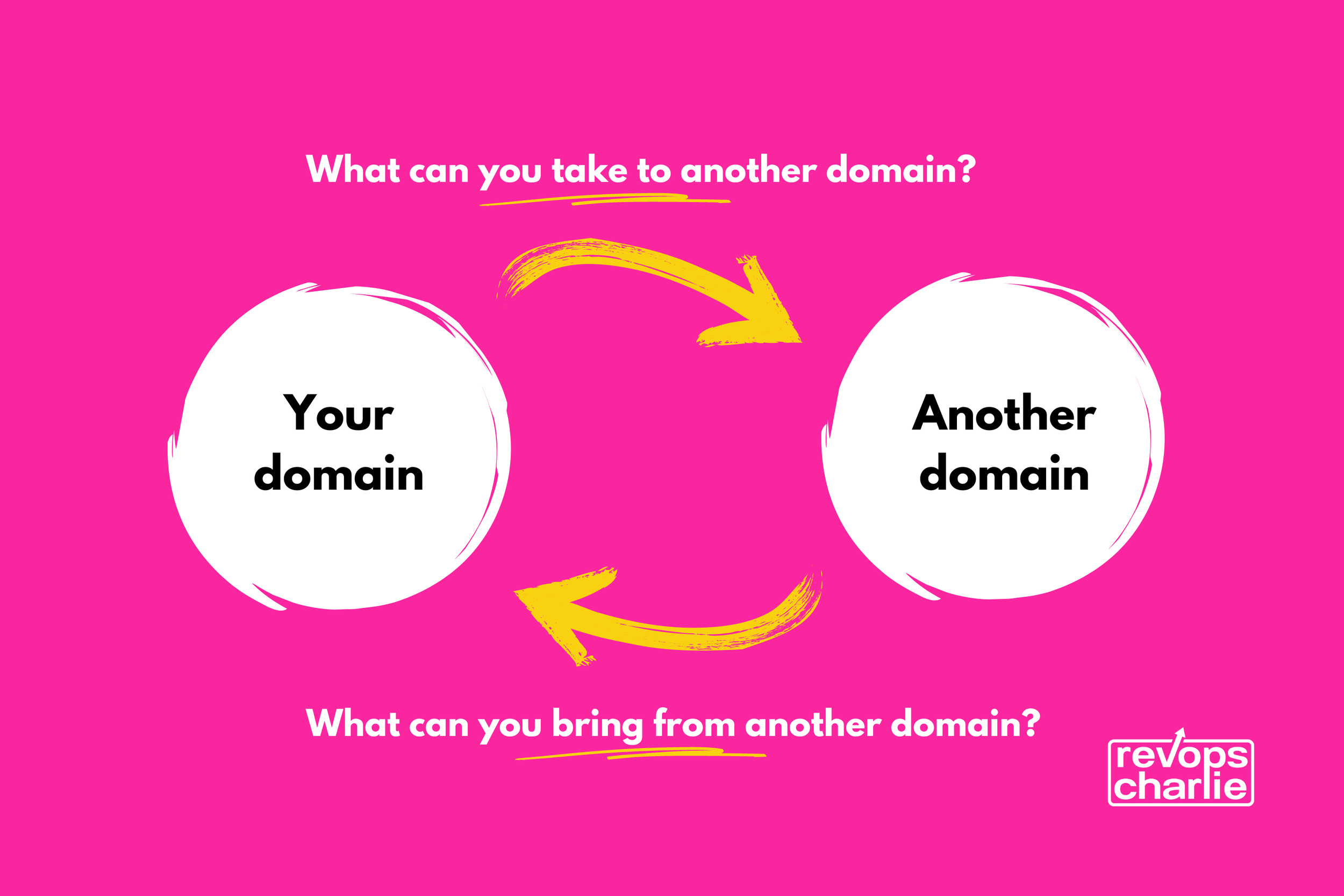Using knowledge across domains - learnings from Range
I recently finished reading Range, a book looking at how generalists can triumph in a specialised world.
Available on Amazon
We’re told that to be good at anything you need to specialise early.
“Tiger Woods first picked up a golf club at two years old,”
“You need 10,000 hours of practice to be an expert at anything.”
And yet in the book David Epstein recounts numerous examples from Van Gogh to Roger Federer where it was their experience across multiple fields that eventually allowed them to excel at one.
I recommend reading the full book, but let me summarise it in a business context in a simple diagram.
By domain I mean an area of knowledge:
You might know SaaS and another domain is consulting
You might know financial services and another domain is healthcare
You might know marketing and another domain is HR
As we go through our careers we are taught to specialise - “I am an SEO expert,” or “I am a FinServ AE”
Instead we should be asking ourselves and those around us how their knowledge and experience inside and outside of work can be used in two ways.
How can what we know about our own domain be used in another context?
For example - I might be a financial services specialist and have deep experience around financial regulations.
How might that knowledge be useful in the context of healthcare? Could I provide a unique insight that those in the healthcare sector are too close to see it themselves?
Have a look around you, either at challenges within different domains in your own business, or at other companies analogous to your sector.
What do you know that could be applied to those other teams or sectors?
How can I bring in knowledge from another domain to improve my own domain?
It is easy to sit in your own echo chamber - following peers on Twitter, or reading books by authors in a similar role.
Instead, read in other domains - if you are a marketer read about customer success, if you are in SaaS read about CPG, if you are in commerce read about non-profit.
When you start reading you won’t immediately be able to make any connections - but as you progress your mind will start pinging - “this sounds a lot like……”
When bringing people together to solve a work challenge or define a strategy don’t just bring in the obvious choices.
Think about who might have experience from another domain that could help frame the problem in a different light.
Who used to work in a different industry?
Who sits on a board outside of work?
Who volunteers in their spare time?
Who has a side hustle?
Who is writing a book?
Who has a thriving TikTok account?
Who runs the local sports team?
Who studied Spanish at university?
Let your mind wander
In today’s tech world, especially with the emergence of AI, we’re so keen to get to the answer we want that we rarely let our mind wander.
Take time to learn about other aspects of business - you’ll either improve your ability to do your own job, or take your career in directions you’d never have imagined.
Get started
Whenever you are ready, there are three ways that I can help you accelerate your revenue.
Buyer Experience Audit - I’ll impersonate a buyer researching your segment and company and let you know what I find. Ideal for planning your Revenue Operations strategy.
Business Model Design Workshops - I’ll work with you and your team to design or refine a business model for a new or existing product.
RevOps Impact Playbooks - I’ll help you implement one or more tactical processes across your revenue teams - content, referrals, testimonials, adoption and more.


